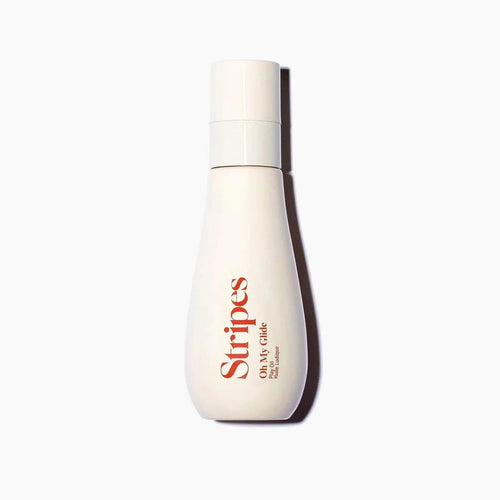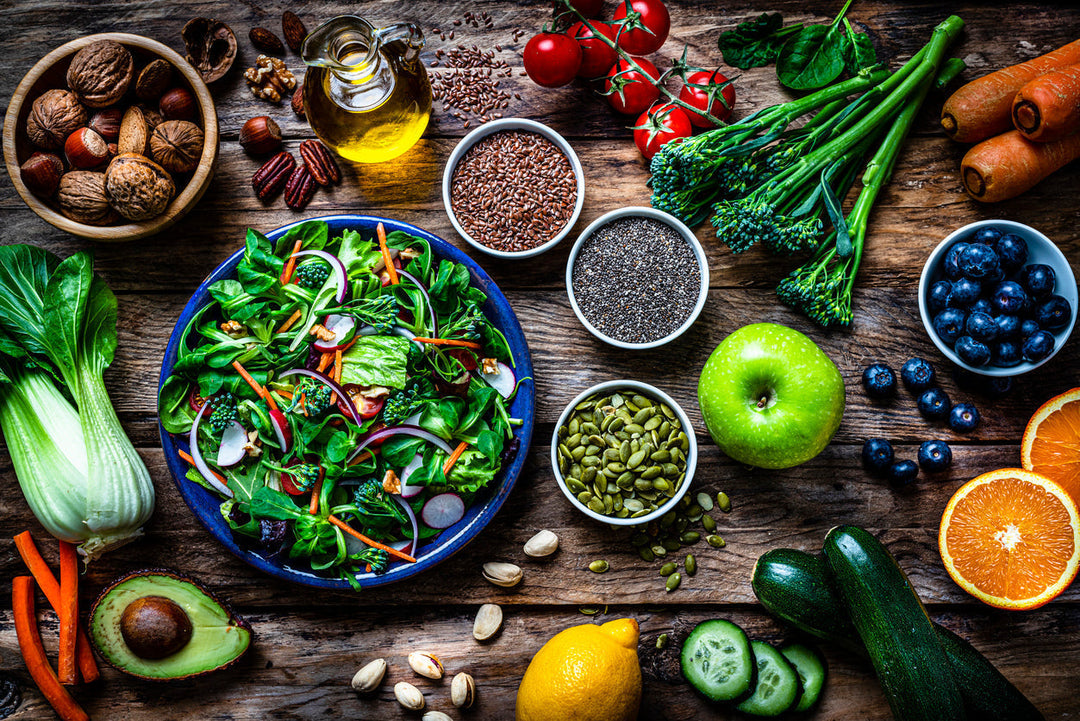What Does Weight Loss Mean To You in Midlife?
I can’t tell you the first diet I went on — it does not hold the same sentimental place in my heart as, say, the first boy I kissed (Andrew Conway) or the first thing I shoplifted (Wet N Wild nail polish, metallic blue). But I can tell you that I have been on a lot of them.
I’ve spent the past few decades periodically dieting my brains out — cottage cheese dieting, Master Cleansing, South Beaching, calorie-counting, low-carbing, and attempting to subsist on “a shake for breakfast, a shake for lunch, and then a sensible dinner.” But in all those years of dieting, I’ve never really dug into why. I mean, of course, we live in a cruel, biased culture that sends the message that women need to be as small as possible to have any value. But I can’t tell you what all that dieting, and all those dreams of weight loss, actually meant to me, personally.
“When we focus on food, we're trying to regain control of our lives,” says Amelia Sherry, registered and certified dietitian/nutritionist. This can be especially pronounced in midlife, when metabolism usually slows, changing our weights and bodies in ways that may feel out of our hands. “Much like adolescent girls, hormonal changes are causing our bodies to change, and since we live in such a looks-obsessed culture, it can make us feel like our identities are changing…which isn't true at all.”
40% of people making New Year’s resolutions this year are resolving to lose weight. And while some of us might be making that resolution as part of a medical program supervised by a doctor, a lot of us are signing up for boot camps and meal delivery services in search of something more emotional — a sense of security in the world, proof that we’re visually appealing, a feeling of control. What happens when we really look into the feelings driving our diets?
What does weight loss really mean to you?
When we step on that scale or buy that bulk case of protein smoothies, what are we really looking for? Sherry recommends thinking about your motivation to diet, and “to keep asking yourself why.” “Because the truth is that losing the weight or changing your body is usually not going to get you what you're after.”
For example, if you want to lose weight because you think it will make it easier to date, Sherry suggests asking yourself “why you want to find a new relationship. [If the answer is] because I'm lonely, okay, so why are you lonely? You can really examine what's underneath the desire to change your body and go after that goal instead — because losing weight or changing your body usually isn't going to get you what you actually want. You can use that opportunity to dig deeper into what your own goals are and get clarity on what really is going to make you happy.”
Toss the scale and your old jeans
If you’re ready to make a break from dieting, Sherry recommends that anyone (except people who need to monitor their weight while taking a specific medication) get rid of their home scale. “I have never had a client who's had a positive experience stepping on their scale,” says Sherry. “You don't want your entire day to be dictated by a number you see on a scale in the morning.”
She also suggests parting ways with old items of clothing that no longer fit — you may think they’re “aspirational,” but they’re probably just making you feel like you’re not good enough.
“I have so many clothes from prior to becoming a mom, things from before that part of my life that I was still hoping to fit into 10 years later,” says Sherry, “But confronting those in my closet week after week was not helpful at all. And getting rid of them was a good step in me moving forward accepting who I am now and what my body is now.”
Try feeling, not thinking, your way through meals
If you’re anything like me, you have a depressing calculator built into your brain that knows the calorie count of pretty much every food around. Meals feel like a calculus test, trying to figure out what I “should” eat, or what I’ll be sorry about eating later.
To get out of this unhelpful headspace, Sherry recommends trying intuitive eating, which is about trusting your body’s internal cues and desires, rather than restricting ourselves from “bad” foods or forcing ourselves to load up on “good” foods.
“We shouldn't be thinking our way through the meal,” Sherry says. “We should let our appetite and what we want sort of dictate things, and then we can add a little bit of common sense on top of there.”
Think about what you expect to happen when you reach your “ideal weight”
I can tell you what my ideal weight is. I can tell you the various ways I beat myself up for not getting there. But I cannot, for the life of me, explain what exactly I think will change about my life when I get there — except that I get to stop feeling the shame of not being my “ideal weight.”
Licensed clinical psychologist Heidi Dalzell notes that “even if we were to reach that number, self-esteem is internal and not external." There’s no guarantee that the boost in self-image we believe will accompany our “ideal weight” will ever actually arrive.
Instead, Dalzell says that “New Year’s is a time of reassessing values and aligning one’s life with who they want to be on a more holistic level.” Instead of taking this moment to make body goals, use it to make bigger goals: “How would we like our life to look in terms of how we interact in the world? Take care of our physical selves? Are we spiritually and physically fulfilled? How can we give back and help others? These are all things a number cannot measure.”
If you're thinking “what a bunch of B.S.,” well, that’s fine
If you’re old enough to read this website, chances are you’ve spent most of your life living in a world where dieting was simply considered part of all our lives. The idea that dieting could be psychologically dangerous, or essentially ineffective, goes against a lot of the information we’ve been raised to believe. Would our moms, professionally edited magazines, social media and celebrities lie to us? You don’t have to be instantly sold on it. Sherry notes that some clients who come to her in midlife look askance at the idea of giving up dieting. “If your initial reaction is, this isn't for me, that's totally understandable. But it doesn't mean there isn't any hope or that you can't learn to appreciate and enjoy your body more the way it is.”
I’d love to say I wrote this article and immediately threw out my scale, but I didn’t. It’s still leering at me from the corner of my room, like a judgmental aunt at an awkward family party. But I did eat a piece of cake last night. I decided that I wouldn’t put it into my calorie counter app, or obsess about what I had to not eat the next day to “make up” for it. I would just eat the damn cake.
Of course, my first thought when I woke up the next morning was, “Shouldn’t have eaten that cake.” But I did try to sit with the thought for a moment. Did I want to be 50, 60, 70 years old, having accomplished whatever I’ll accomplish and lived through whatever I’ll live through, and still believe that the most important thing about me was how much cake I ate? I do not.
Changing my thinking about my body feels scary. But, for the first time, spending the rest of my life hating my body feels worse.
Gabrielle Moss is the editor at Stripes. She's the author of Paperback Crush: The Totally Radical History of '80s and '90s Teen Fiction. Her work has appeared in the New Yorker, Slate, GQ, Buzzfeed, Marie Claire and elsewhere.
Photo by Miriam Alonso/ Pexels











